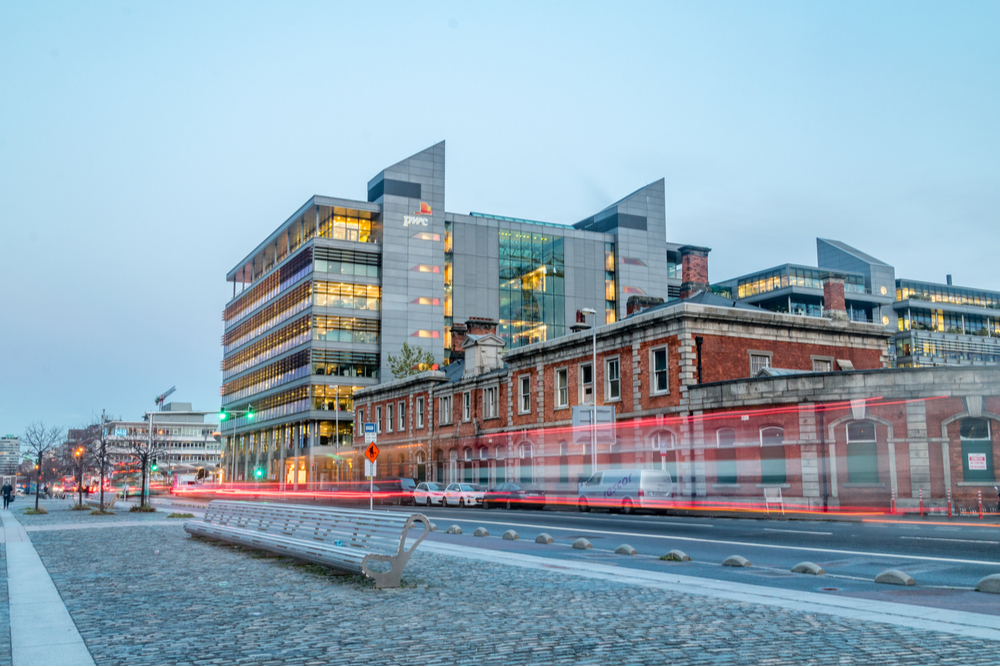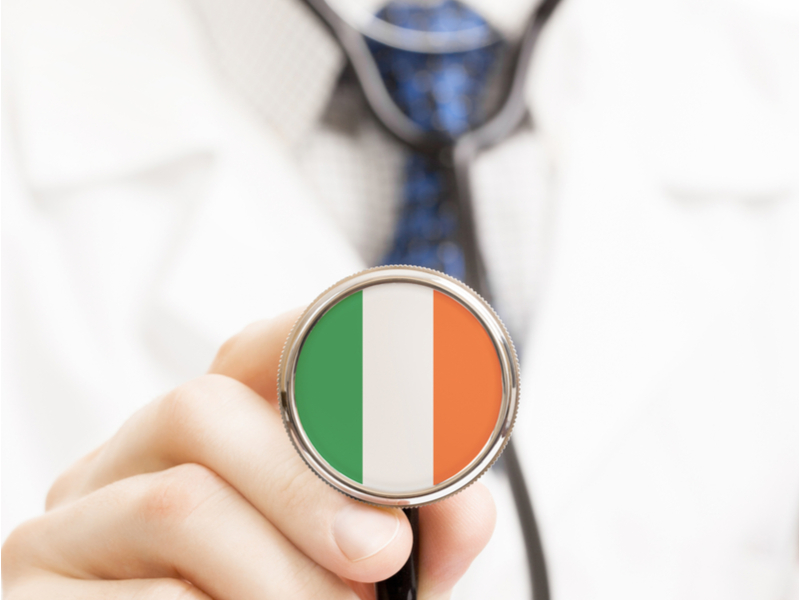Podcast Ep 117: HaloCare CEO Sarah-Jane O’Dwyer talks about how discrete digital devices in the home could soon be a game-changer for patients and care-givers across the world.
Carlow-based HaloCare is a digital solution supporting remote healthcare and ‘ageing in place’ for older people, as well as care in the community for those with long term illnesses.
A measure of how the company’s technology speaks to a global problem, HaloCare was the only Irish company invited to take part in the Sustainable Development Goals (SDG) Lab at Davos in Switzerland in May.
“It’s not about telling someone that they are old before their time, but making sure they are afforded respect and dignity as they enter their twilight years”
HaloCare was among just four global healthcare companies invited, on account of the Irish firm’s innovative technology that will help address the global challenge of the healthcare needs of ageing populations and addressing capacity issues in the acute setting.
The business was co-founded by entrepreneur Johnny Walker, along with chair David Walsh and chief technology officer Niall Kelly.
Both Walsh and Kelly co-founded the highly successful Netwatch remote security monitoring business. Walker, who presented alongside O’Dwyer at Davos, is an Australian interventional radiologist and nuclear physician, based in the Hermitage Clinic, Dublin. He is heavily invested in medical technology aimed at providing more efficient care, especially at home and in remote locations. The first remote screening technology he developed over twenty years ago was when working with the aboriginal community in the outback of western Australia. As well as establishing Global Diagnostics, he is a founder of Jinga Life, for digital medical records, and, more recently helped establish HaloCare.
The Carlow-based digital healthcare service comprises a suite of contactless digital technologies in the home allowing older adults or those with chronic illness to live at home independently, socially connected and with health data and home security checks 24/7.
Transforming healthcare
“Covid has taught us that we can come up with a different model of care for the older person; a hybrid model that uses carers more effectively and using technologies that are proven to be effective”
HaloCare CEO Sarah-Jane O’Dwyer’s vast experience in healthcare spans from working as a critical care nurse, to a becoming a healthcare manager and policy advisor for global organisations.
She has worked with international private and public health care organisations across Europe and the Middle East, and has managed multi-million transformation programmes across multiple countries. The HaloCare CEO is driven by the power of transformational digital-enabled patient-centred care to deliver better health and wellbeing outcomes.
The Carlow start-up, operational since 2021, now employs 30 people, with numbers doubling in the next two years, and with global expansion on the horizon. To date, the HaloCare focus has been on older adults, but the technology can adapt to the care needs of many, including people with a disability, chronic illness, or convalescing.
Speaking with ThinkBusiness O’Dwyer says the purpose of HaloCare’s technology is to be discreet to encourage dignity and independence, but responsive in the case of any incidents. “In the case of an older person who may have a cognitive impairment such as Alzheimer’s or dementia but who gets their meals delivered to their home, these tiny microchips would sit in places like the back of a microwave to tell if the person has been using the microwave or putting cutlery in the drawer. We would have all of these tiny discreet devices positioned all around the home. We also have a state-of-the-art car hub facility in Carlow that is managed 24/7 by our care team that will also check in on people. It’s giving that one-to-one feeling and a personal approach. It’s not about putting tech into a home to monitor people, it’s actually a full 360-degree circle of care that we provide.”
Fundamentally, it is about respecting a patient’s dignity and privacy. “Because the devices are discreet you won’t even know they are there. So it’s not about telling someone that they are old before their time, but making sure they are afforded respect and dignity as they enter their twilight years.”
A universal problem
O’Dwyer says that the medical world recognises that the need for ageing in place technologies and solutions is a universal issue. And, because of the pandemic and the isolation it imposed on people, hospitals and medical systems had to pivot because people couldn’t be physically going near hospitals unless it was critically important to do so.
As a result virtual clinics and remote patient monitoring which had been seen as futuristic concepts before the pandemic, became the only way many patients could be safely looked after without having to run the gauntlet of Covid-19 in a medical setting.
“It actually worked really well and the general public adapted to it. People realised they didn’t have to sit in a GP’s waiting room with 20 other people who were coughing and sneezing. They could do a video call with their GP, do their physio and access other services at a time and a cost that was more convenient.”
According to O’Dwyer Ireland is a hotbed of medical technology innovation and care systems like the HSE are keen to employ new technologies in the face of skills shortages and ICU capacity bottlenecks.
“This isn’t just an Irish issue, it is happening all over the world. We just don’t have enough clinicians coming out of universities. It takes years to train nurses to ICU standards. Philips Healthcare, for instance, is monitoring ICU beds in the Middle East from their command centre in London. So the technology is there. It just depends on organisations being willing to pilot it and adapt quickly.
“Covid has taught us that we can come up with a different model of care for the older person; a hybrid model that uses carers more effectively and using technologies that are proven to be effective.”
O’Dwyer points out that technology will never totally replace one-to-one care, especially in acute circumstances, but it can be used to help people age in place with dignity and avoid unnecessary visits to the GP or hospital.
“One lady we work with used to ring her mother 10 to 15 times a day to check in on her and now she doesn’t need to because she has the HaloCare app and she can see how many times her mother opened and closed the front door or put the kettle on or put the microwave on for her porridge. It helps to take the pressure off the carer.”
The next big chapter for HaloCare is for it to scale globally. It’s no accident that two of the founders – David Walsh and Niall Kelly – also co-founded the highly successful global security monitoring business Netwatch and this gives a vital clue to the founders’ intentions for where HaloCare is headed next.
“We have our state-of-the-art care hub here in Carlow. We have embarked on a couple of projects with the HSE as well as a couple of private care providers here in Ireland.
“We align ourselves with international best practice. We’re working with the UN SDG goals for development and healthcare globally. We’ve had a lot of calls internationally about this. We just want to spend this year solidifying ourselves here in Ireland and getting good traction, which is happening. And then we’ll go international and scale.”





